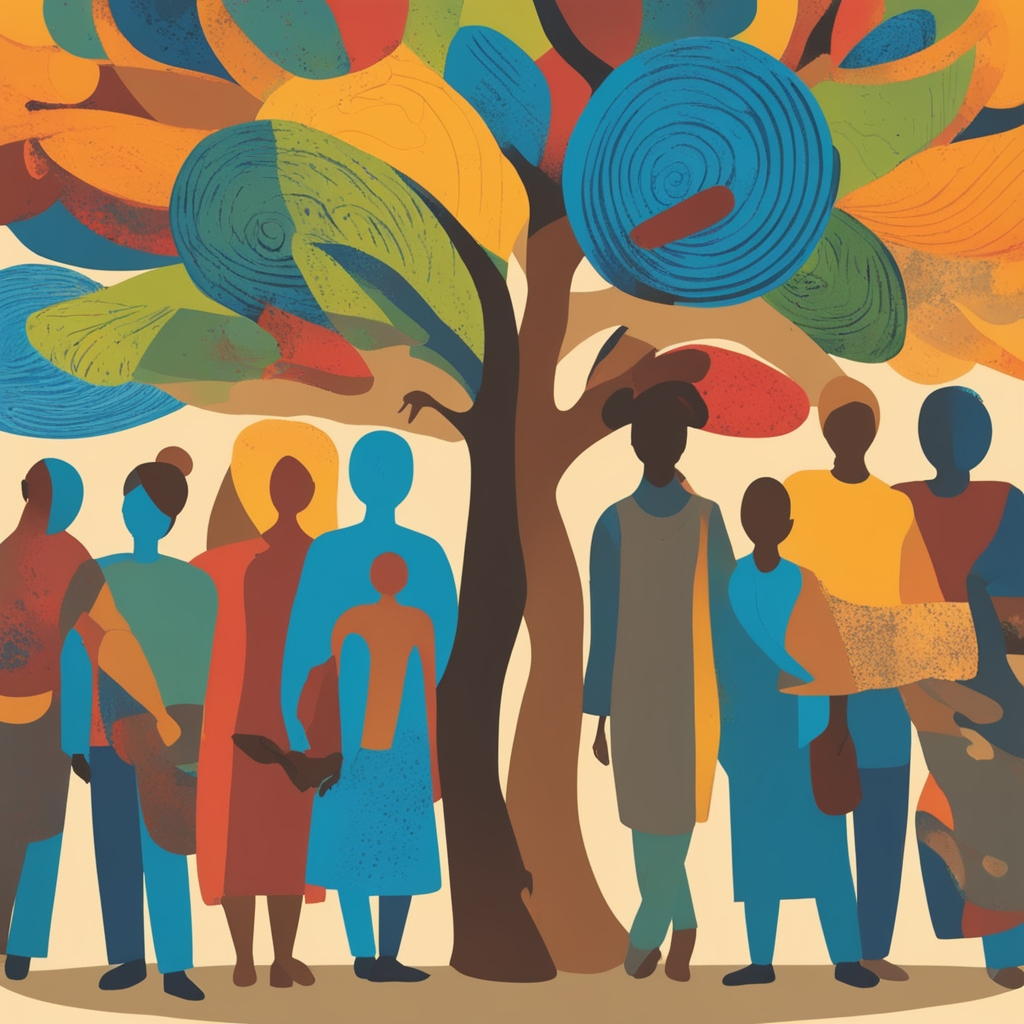Crucial Manual for Cross-Cultural Social Work and Culturally Competent Social Work Practice
The Essential Information Regarding NASW Standards for Cultural Competence
Cultural competence is becoming a necessary skill set for social workers who want to effectively serve a variety of clientele. Ethnic and racial minority groups are expected to become the majority in the US by 2045, according to U.S. Census projections.
The aforementioned demographic transition highlights the pressing requirement for culturally competent social work in order to deliver fair and significant services to a variety of communities.
The NASW cultural competence guide, the significance of cultural competence in social work, and its numerous elements will all be covered in this article.

Photo by Andrea Piacquadio
Social Worker Cultural Competence
Are you ready to change the way you approach your profession and go on a life-changing journey of cultural competence social work?
Find out everything you need to know by reading on!
See Also: Best Social Work Immigration Job Aid | Guide for Immigration Social Workers
Would you like to share feedback on this cultural competence in social work guide? If so, contact the Case Book Work Hub Team.
Social Work Definition of Cultural Competence
You might want to start by learning what cultural competence social work is if you’ve never done it before. We’ll start with the definition of cultural competency provided by social work to get that out of the way.
In social work, cultural competency is essentially the ability of practitioners to interact, comprehend, and value people from different cultural origins. This includes communities, families, and individuals.
Developing the knowledge, abilities, and attitudes necessary for social workers to negotiate cultural differences, remove structural obstacles, and offer inclusive and equitable services is known as social worker cultural competency.
In order to guarantee culturally sensitive and responsive practice that satisfies the particular needs and preferences of many groups, cultural competency in social work also places a strong emphasis on self-awareness, cultural humility, and continual learning.
Next, we will examine the definition of cultural humility in social work and how it relates to cultural competency in social work.
Related: Social Work Case Planning Guide with Examples & Studies
Cultural humility: What Is It?
The definition of cultural humility in social work is an approach that, while working with individuals and groups from varied cultural origins, promotes self-reflection, openness, and a continual learning process.
It entails confronting one’s own prejudices, realizing the limitations of one’s own cultural perspective, and making an effort to comprehend and value the cultural perspectives of others.
In contrast to the notion of cultural competence, which calls for achieving a certain degree of proficiency or mastery in other cultures, the definition of cultural humility in social work stresses the significance of acknowledging that people and communities are the experts on their own experiences and cultures.
Social workers must approach their work with humility, respect, and an open mind to absorb new information from the people they assist.
Do you have additional feedback on cultural competence definition social work or the cultural humility definition social work? Click here to contact the Case Book Work Hub Team.
The NASW Cultural Competence Guide: What Is It?
A publication created by the National Association of Social Workers (NASW) that offers guidelines and a framework for social worker cultural competency is officially known as the NASW Standards and Indicators for Cultural competency in Social Work Practice.
Cultural acuity This NASW resource describes the beliefs, knowledge, and abilities that social workers need in order to interact with people from different cultural origins in communities, families, and individuals.

Photo by Pavel Danilyuk
Cross Cultural Social Work
Get better at what you do by subscribing to our All-in-One Case Book Management Hub Platform, which is software that helps you manage all of your cases and clients.
We will then focus on ten NASW standards related to cultural competence.
Popular Article: Ultimate Family Social Worker Guide for Working with Families
The NASW Cultural Competence Standards
Social workers can use the NASW standards for cultural competency in practice as a guide to:
- reflect on their practice
- identify areas for growth, and
- develop strategies for providing culturally sensitive and responsive services.
Social workers can strive toward the eradication of cultural prejudices, the promotion of fair treatment, and the development of closer relationships with the people and communities they serve by upholding these cultural competency NASW criteria.
Together, let’s examine the NASW cultural competence requirements!
Standard 1 of Cultural Competence NASW – Ethics and Values
Social workers must adhere to the NASW Code of Ethics, integrating cultural competence in social work by embracing self-awareness, cultural humility, and recognizing culture’s significance in effective practice.
If you’re looking for a way to make your social work practice even more effective, sign up for CBH’s All-in-One Client and Case Book Management Hub Software today and see how our tool can help you with intakes, assessments, case notes, correspondence, and so much more…
Standard 2 of NASW Cultural Competence – Self-Awareness
In order to do social work with cultural humility and sensitivity to power dynamics in all facets of their work, social workers must recognize privilege and power dynamics as well as their own cultural identities.
Standard 3 of Cultural Competence NASW – Cross-Cultural Knowledge
Social workers should possess and continuously develop comprehensive knowledge of various cultural groups, including their:
- history
- traditions
- values
- family systems, and
- artistic expressions.
Standard 4 of NASW Cultural Competence – Cross-Cultural Skills
Social workers should utilize a range of skills and techniques at micro, mezzo, and macro levels, showcasing an understanding of and respect for culture in practice, policy, and research.
Standard 5 of Cultural Competence NASW – Service Delivery
Social workers need to be knowledgeable about and skilled in using institutions, services, and resources that support multicultural populations. They should also be able to make recommendations that are appropriate for the recipient culture and address service gaps that affect certain ethnic groups.
Read More: Best Patient Health Questionnaire (PHQ) Scoring & Assessment Guide
Standard 6 of NASW Cultural Competence – Empowerment and Advocacy
Social workers must be aware of the impact of social systems, policies, practices, and programs on multicultural populations, advocating for and with clients whenever appropriate, and participating in the development of empowering policies and practices.
Standard 7 of Cultural Competence NASW – Diverse Workforce
Social workers should support efforts to ensure diversity within the social work profession, advocating for recruitment, admissions, hiring, and retention initiatives in programs and organizations.

Photo by RDNE Stock project
Cultural Diversity in Social Work Practice
NASW Cultural Competence – Professional Education Standard 8
As a focus of lifelong learning, social workers ought to support and partake in professional education and training initiatives that advance culturally competent social work practice.
Language and Communication, Standard 9 of the NASW Cultural Competence Framework
It is imperative for social workers to facilitate and promote efficient communication with individuals from varied cultural backgrounds, encompassing those with restricted English language skills, poor literacy levels, visual or auditory impairments, or disabilities.
Leadership to Promote Cultural Competence, Standard 10 of the NASW Cultural Competence Standard
It is imperative for social workers to exhibit leadership abilities in order to collaborate with multicultural groups in communities and inside organizations.
It is their duty to promote inclusive and varied communities and institutions, combat discrimination, and advance social work practice that is culturally competent.
By streamlining your workflow and reducing paperwork, CBH’s Client & Case Book Management Hub Software allows you to spend more time assisting clients.
Sign up for the Case Book Management Hub platform right now to optimize your processes and give your clients back vital time.
We’ll go over each of the ten NASW standards for cultural competence in social work practice, and to help you understand how this applies in the real world, we’ll provide some examples of cultural competence in social work.
Do you have any questions about cultural diversity in social work practice? Do you have feedback on cultural sensitivity in social work in general? If so, contact the Case Book Work Hub Team.
Examples of Cultural Competence in Social Work | Social Work and Cultural Competence
Next, we will explore three clear examples of cultural competence in social work.
These examples of cultural competence in social work highlight how social workers can demonstrate respect for cultural beliefs and practices, engage in collaborative decision-making, and conduct culturally-informed assessments to provide effective and culturally sensitive support.
By incorporating NASW standards for cultural competence in social work practice and these examples, social workers can foster meaningful connections and promote positive outcomes for the diverse populations they serve.
Examples of Cultural Competence Social Work
- A social worker is working with a client from a marginalized immigrant community who is seeking therapy for anxiety.
The social worker, demonstrating cultural competence and cultural awareness in social work, takes the time to understand the client’s cultural background, including their traditions, beliefs, and values.
They recognize the influence of the client’s cultural experiences on their mental health and tailor the therapy approach accordingly.
The social worker incorporates culturally sensitive techniques, such as storytelling or incorporating cultural rituals, to foster a therapeutic connection and promote healing.
Need help to keep track of it all?
CBH’s All-in-One Client and Case Book Management Hub Platform is a perfect solution for social workers that comes equipped with 40+ assessments and intakes, case notes, letter templates, and so much more.
Get started with Case Book Management Hub today and start maximizing efficiency, enhance collaboration, and elevate client outcomes.

Photo by Kindel Media
Social Worker Cultural Competence
- A social worker is working with a family involved in the child welfare system.
The family is from a different cultural background, and the social worker is aware that good communication with them depends on her cultural competency and knowledge.
In order to comprehend the family’s strengths and difficulties within their cultural context, they actively endeavor to understand the family’s cultural practices, customs, and parenting approaches.
The social worker collaborates with the family, respecting their cultural values, and incorporates culturally appropriate interventions to promote positive parenting and child well-being.
These examples illustrate how cultural competence social work involves:
- understanding and respecting diverse cultural backgrounds
- adapting interventions to align with cultural values
- collaborating with clients, and
- advocating for culturally responsive services.
By embracing cultural competence, social workers can build meaningful connections and provide cross cultural social work effective support to individuals, families, and communities.
Related: Social Work Case Manager Job Aid | All You Need to Know
Do you have any questions about examples of cultural competence and cultural awareness in social work described above? Click here to contact the Case Book Work Hub Team.
Importance of Cultural Competence in Social Work
Cultural competence social work is highly significant, particularly when working within a context of cultural diversity in social work practice.
Social workers encounter a wide range of individuals and communities from diverse cultural backgrounds, social worker cultural competence essential for effective and ethical service provision.
Understanding the importance of cultural sensitivity in social work is key to establishing rapport and trust with clients.
By embracing cultural competence, social workers can navigate the complexities of cross-cultural social work and deliver interventions that are respectful and responsive to the unique values, beliefs, and practices of diverse populations.

Importance of Cultural Sensitivity in Social Work
The National Association of Social Workers (NASW) has created guidelines to help social workers in their practice because it recognizes the value of cultural competence in social work.
As previously discussed in this article, in order to promote effective social work with various populations, NASW criteria for cultural competency place a strong emphasis on the importance of cultural awareness, self-reflection, and continual education.
Social workers who adhere to the NASW standards for cultural competency demonstrate a commitment to providing inclusive and equitable services by placing a high value on the development of cross-cultural social work skills and expertise.
Do you have further insight into importance of cultural competence in social work that you would like to share? If so, contact the Case Book Work Hub Team.
Conclusion | Cultural Competence of Social Workers
We hope that this Case Book Work Hub guide has demonstrated to you how social workers may address systemic injustices, confront oppressive structures, and promote laws and procedures that are sensitive to cultural differences by implementing cultural competency social work into their work.
Cultural competence is essential for improving social work practice because it helps close communication and comprehension gaps. By enabling social workers to handle cultural difference with tact and deference, it lessens the possibility that their work will be biased or misinterpreted.
Social workers create an inclusive atmosphere where people from all backgrounds feel valued and empowered by embracing cultural diversity and cultural competency in their work.
Don’t Miss: Best Social Work Evaluation Methods for Social Workers | Practice, Program, and Tools
